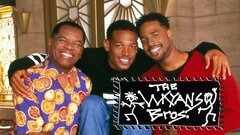Though R&B singer Gloria Gaynor enjoyed only a handful of hit singles at the height of the disco era, she stood apart from countless other successful artists by virtue of having recorded a genuine anthem - the soaring "I Will Survive" - which remained a battle cry for empowerment in all forms for the next three decades. Gaynor rose to fame in 1975 with the melancholy disco hit "Never Can Say Goodbye," but would not find true stardom until 1979, when "I Will Survive" topped the Billboard Hot 100.
Widely embraced by a variety of listeners, from dance fans to the women's and gay pride movements, the song would become Gaynor's most enduring hit, as well as her last significant single; the backlash against disco would unmoor her career, which turned her briefly to Christian music before Gaynor returned to the dance fold. Countless cover versions and tireless radio airplay, along with Gaynor's willingness to perform the tune on any number of television series, talk shows and in live performance, kept the song's legacy alive, and in doing so, cemented Gaynor's status as one of disco's longest-reigning queens.
Born Gloria Fowles in Newark, NJ on Sept. 7, 1949, Gloria Gaynor was the daughter of Daniel Fowles and Queenie May Proctor, who raised their large family in an atmosphere steeped in music. Her father played ukulele in a nightclub group, and several of her brothers sang as part of a gospel quartet. Gaynor herself had singing ambitions, but was discouraged from performing with her brothers' group. She instead found her showcase at school as part of girls' chorus and glee club. Singing soon became her primary passion, but her mother pressed her to develop a secondary career to fall back upon in the event that her musical ambitions did not come to fruition.
Gaynor attended beauty school and took business courses while honing her vocal talents, which found their first professional outlet as part of the R&B act the Soul Satisfiers. She later embarked on a solo career, which attracted the attention of MGM Records president Mike Curb. Gaynor's debut album, Never Can Say Goodbye (1975), established her as an act on the rise in the disco market with its title track, which rose to No. 1 on the Billboard dance chart.
The record also broke new ground with an unbroken 19-minute, three-song medley of "Never Can Say Goodbye," "Honey Bee" and "Reach Out, I'll Be There" that dominated its entire first side. The format was targeted directly for use in clubs, and would later give rise to the "megamix" popularized by DJs and dance acts in subsequent decades.
Gaynor immediately set to work on a follow-up album, but 1976's I've Got You failed to match its Top 40 placement on the pop and R&B charts. Two subsequent albums also underperformed during their release, but Gaynor soon rebounded with 1978's Love Tracks, which featured the single "I Will Survive."
Initially released as a B-side for the song "Substitute," it generated massive audience response through radio airplay, which spurred Gaynor's new label, Polydor, to throw their promotional weight behind the song. It would eventually rise to the top of the Billboard pop and dance charts before earning the sole Grammy for Best Disco Recording in 1980. "I Will Survive" would go on to become an anthem of sorts for female emancipation as well as the gay pride movement, both of which would keep the song in regular rotation at clubs and events for decades.
Gaynor's career, however, floundered in the years that followed the song's release. The cultural backlash against disco capsized her recorded output, and Gaynor herself would turn her back on dance music after becoming a born-again Christian in the early 1980s. In 1983, she released a self-titled album with a decidedly pop-friendly tone that failed to attract her previous fan base; a subsequent remake of "I Will Survive" which credited God as the source of her personal strength further alienated listeners.
Gaynor shrewdly reversed her position on dance music for her 1984 album I Am Gloria Gaynor, which featured a disco version of the song "I Am What I Am" from the musical La Cage aux Folles (1983). It was warmly embraced by gay music fans, which sent it to No. 3 on the U.S. dance chart.
"I Am What I Am" would mark Gaynor's final visit to the Billboard charts for nearly two decades. She would play the nostalgia circuit on both sides of the Atlantic for most of the 1990s, enjoying revived interest in disco while performing her biggest hits on a variety of television shows, including "That '70s Show" (Fox, 1998-2006) and making her Broadway debut in a production of Smokey Joe's Café in 1999.
Gaynor eventually returned to the recording studio in 2002 to record her first album in over 15 years. I Wish You Love featured two hit singles, "Just Keep Thinking About You" and "I Never Knew," which both topped the dance chart in 2000 and 2001. Three years later, she was inducted into the Dance Music Hall of Fame alongside fellow disco legends Chic and Sylvester. Gaynor celebrated the 30th anniversary of "I Will Survive" in 2009 with a flurry of television appearances, as well as announced a return to Christian music with a new album slated for 2012.
By Paul Gaita



















































